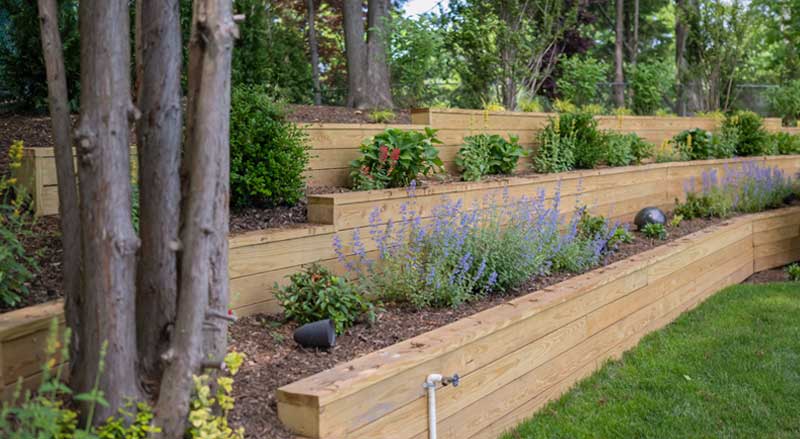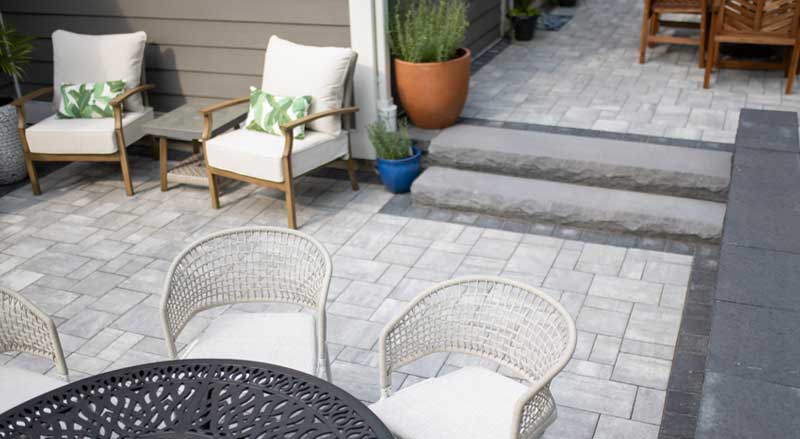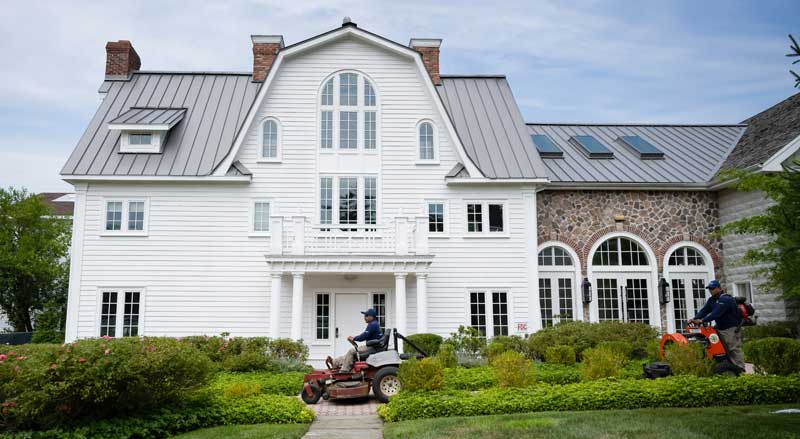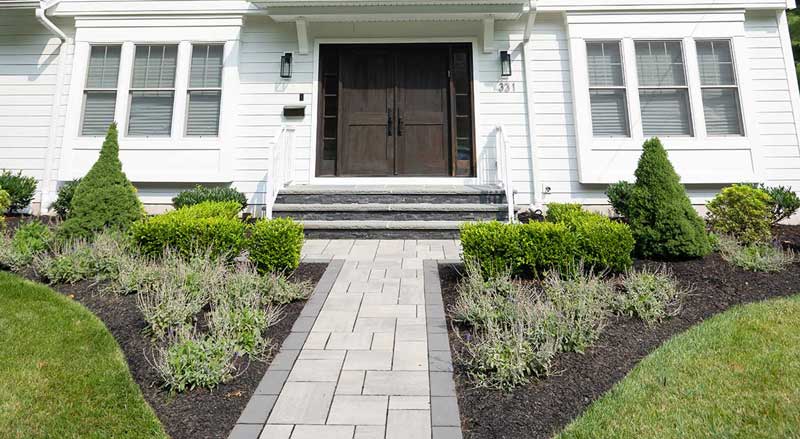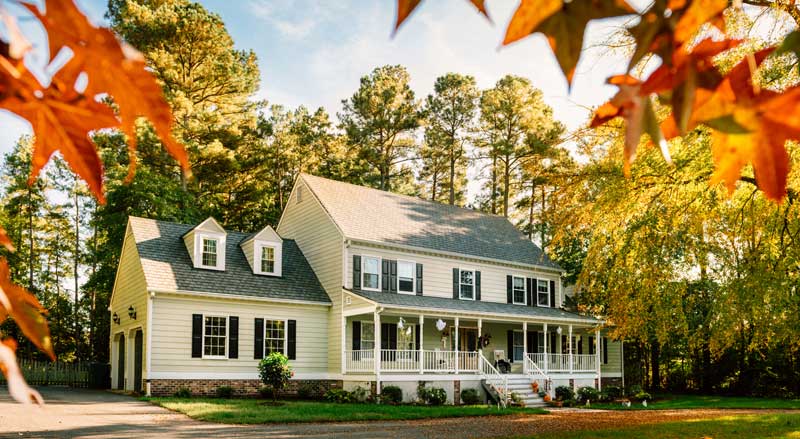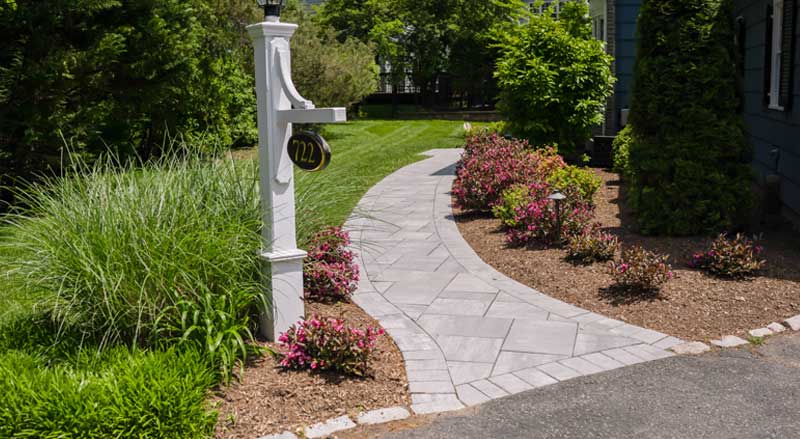Does a landscape problem limit your outdoor plans and dreams? Is that slope in the backyard limiting your usable space? Does water pooling in your yard make it a soggy, unusable mess?
Here’s how to solve common landscaping problems with your property.
Rocky Terrain
Does your landscape have an area of rocks that’s just about impossible to clear? Is your soil so rocky it makes lawn maintenance impossible?
Turn your rocky terrain into a favorite part of your landscape.
Today, rock gardens are a popular addition to landscaping. In fact, many people spend lots of money bringing in rocks and boulders to enhance the natural-looking landscape you already have.
A rock garden can be a low maintenance, low-cost lawn substitute. It can cover a large or small area of your landscaping or decorate a troubling slope.
Find low-maintenance plants of different textures and colors to fill in spaces between rocks. Plan for different flowering seasons and your rock garden will delight year-round.
If you have rocky soil, you can:
- Build raised beds for plants and flowers
- Select plants that grow well in rocky soil
- Add several layers of good topsoil
Sloping Property
A sloping property can ruin outdoor space, but there are fixes.
Create a rock garden on the slope. It will add interest and help prevent soil erosion.
Or create tiers in the slope for several levels of flat, usable spaces.
A meandering path or stone staircase flanked with potted plants will add accessibility and interest.
Your sloped property can be the perfect location for a dramatic landscape waterfall. Try creating that in a level backyard!
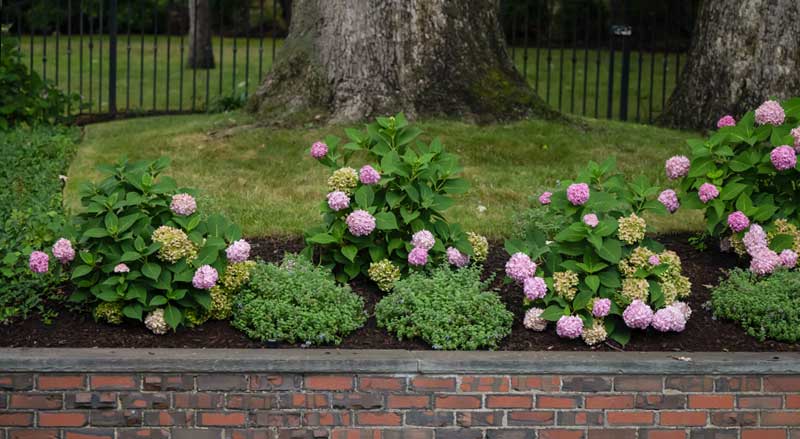
You can cut into the incline for a larger area of level property. Then install an attractive retaining wall. Plant some popular garden flowers behind the retaining wall for extra color and beauty.
Erosion
Wind, rain, and storms blow and wash dirt away, causing unwanted landscape erosion.
Soil erosion isn’t just annoying—it can be dangerous. It threatens the structural integrity of nearby trees since roots can’t grow deep into the soil. Grass won’t easily grow either.
Rocks and boulders can prevent erosion while adding atmosphere and a feeling of permanence.
Planting ground cover also prevents soil erosion. Many attractive ground cover perennials require little maintenance. Also include ornamental grasses and self-seeding annuals.
These ground cover plants thrive in New Jersey:
- Wild ginger
- Periwinkle
- Heartleaf Bergenia
Create retaining walls out of stone or brick. Install plants and ground cover behind the walls to further prevent erosion.
Drainage
Poor property drainage is damaging and dangerous. If your property develops puddles after a storm that take forever to go away, you have a drainage problem.
Standing water keeps the yard soggy—attracting unwanted insects, killing grass and plants, and even threatening nearby structures.
Poor property drainage causes root rot and threatens the stability of nearby trees and plants. This creates potential danger to people, pets, and structures.
Soil can’t drain well if your property is poorly graded. It’s only a matter of time before you have an overwhelming problem. Water consistently gathering at your home’s foundation will cause serious damage.
Installation of an underground French drain can redirect water away from poorly draining areas or your home’s foundation.
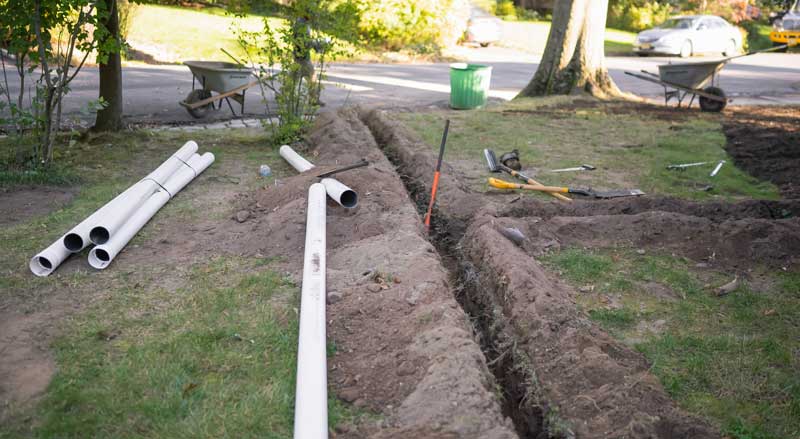
Meet with a landscape engineer who can talk to you about different drainage solutions, including re-grading your property and/or a drainage installation.
Other drainage solutions include:
- Adding absorbent soil into your landscape
- Creating a landscaped pond to give water an attractive place to gather
- Lengthen and redirect downspouts
- Remove non-permeable hardscaping and replace with permeable solutions
Too Much Shade
Everyone loves to relax in the shade on a summer’s day. But when it comes to shade on your yard, there can be too much of a good thing!
Too much shade makes it difficult to grow a lush lawn or certain plants and flowers. If you’ve always wanted to grow lilac bushes—that need six to eight hours of full sun—you’re in for a frustrating time.
Unfortunately, there often isn’t much to do about this problem. You don’t want to move your house or destroy a stately maple tree.
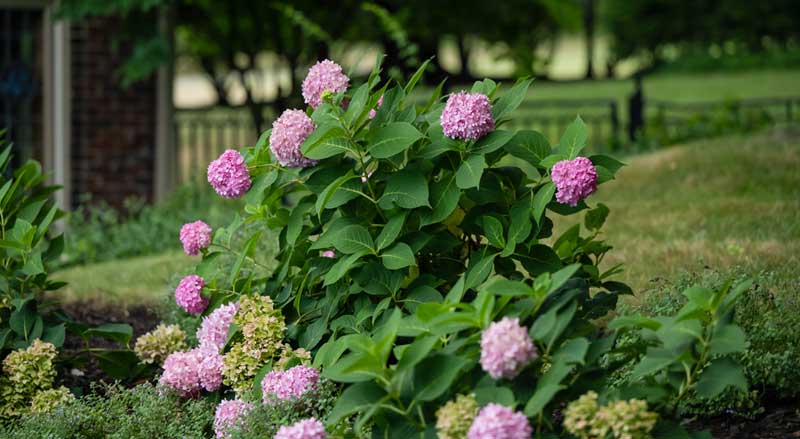
It may be best to accept and embrace the situation. In New Jersey, there are many colorful shade-loving plants to choose from, including:
- Azaleas
- Hydrangeas
- Hostas
Too Much Sun
Too much sun can make you want to run inside on hot days. It can also wreak havoc and destroy some plants and lawns.
But there are ways to deal with this problem.
If you want to keep your backyard green, plant fast-growing trees and plants that offer shade for other plants and flowers.
Select other plants and grasses that thrive in full sun.
Pavilions, gazebos, and pergolas keep people and pets comfortable on hot, sunny days.
No Privacy
Do you wish your yard had more privacy?
This is an easy one to solve.
A latticed screen, covered with ivy, provides privacy and greenery.
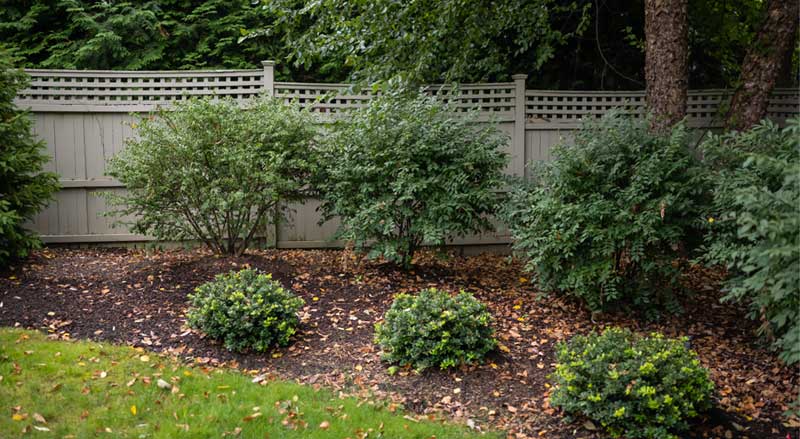
You can install a permanent fence. Just be sure to follow all municipal or community guidelines.
If you hate the look of fences, create a living wall of bushes or fast growing trees.
Pest Damage
Outdoor insect pests damage property, plants, and people!
At Landscape Solutions, we offer mosquito and tick control services to help keep your family safe from these disease-carrying pests.
In New Jersey, two destructive pests are the spotted lanternfly and grubs.
The spotted lanternfly damages trees but is harmless to people. Homegrown treatments include spraying vinegar or insecticidal soap anywhere you see signs of infestation.
Late summer is the ideal time to treat your property for grubs. Springtime treatment is helpful but less effective.
Deer and Small Critters
While many of us enjoy seeing wildlife, we don’t appreciate watching it destroy our flowers, plants, and vegetable gardens.
Local services offer deer repellent treatments that will not harm deer but keep them away. Deer love to munch on trees and flowers and can do thousands of dollars’ worth of damage a single season.
Some deer resistant plants are:
- Colorado Blue Spruce
- Common Boxwood
- Ornamental Ribbon Grass
Smaller garden animal pests include rabbits and groundhogs. Fences are helpful when placed around vegetable gardens or low flowers.
Growing onions and sprinkling coffee grounds in the soil will keep rabbits away.
Weeds
Are weeds threatening your gardens and lawn?
Use mulch in flower beds and around trees.
Mulch will give your landscape a finished look while protecting against weeds and insect infestation.
Lawn fertilization and good lawn care best protect lawns against weeds.
Bored With Your Backyard Landscape?
Add beauty, excitement, and function to your landscaping with:
- Multi-level patios
- Walkways and paths
- Gazebos and pavilions
- Retaining/seating walls
- Water features
- Steps and stairs
- Outdoor kitchens
- Fireplaces and firepits
At Landscape Solutions we can develop a custom design plan to solve your landscape problems and fulfill your landscape dreams.

